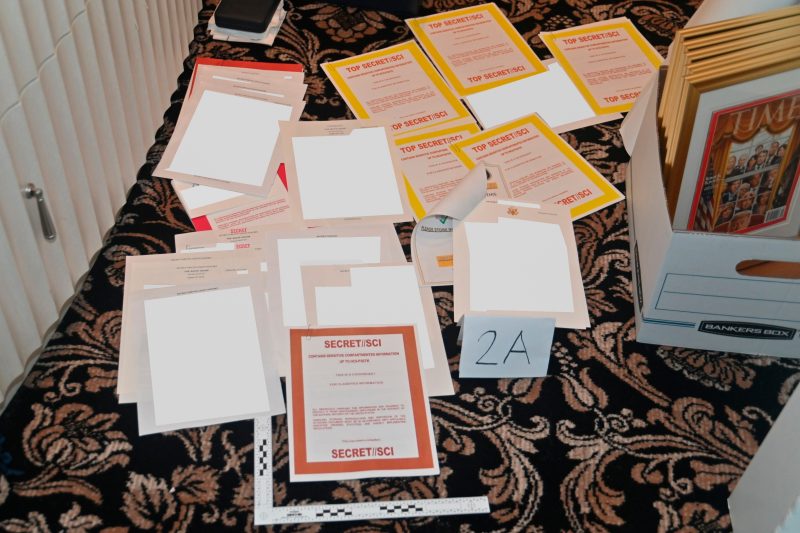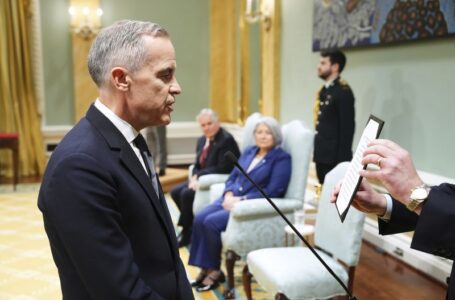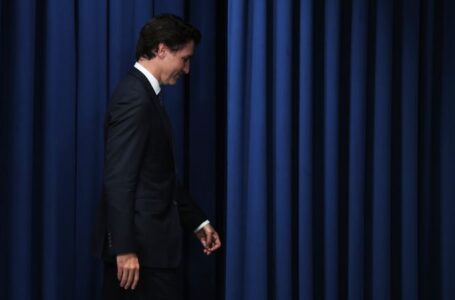Mark Carney sworn in as Canada’s PM after Trudeau steps down
Trump pretrial motions due in Florida; fight over redactions continues


Donald Trump’s attorneys say they plan to file at least 10 motions in federal court in Florida on Thursday as they try to convince a judge to toss out the criminal case against the former president for allegedly mishandling classified papers after he left office and obstructing government efforts to retrieve them.
Trump is charged in Florida with dozens of counts of willfully retaining national defense information and plotting with two aides to keep hundreds of classified documents at Mar-a-Lago, his Palm Beach home and private club, after his presidency ended. He has pleaded not guilty.
His co-defendants in the case — Waltine “Walt” Nauta and Carlos De Oliveira — are expected to join some of the filings Thursday and plan to submit additional motions of their own, according to court filings this week.
Thursday’s deadline to submit the pretrial motions is complicated by a fight between federal prosecutors and defense attorneys over whether names of witnesses involved in the case, and the substance of what they have told investigators, should be made public. The disagreement means that some or all of Thursday’s motions may not be made public for days or weeks.
So far, Judge Aileen M. Cannon, who is overseeing the case, has sided with the Trump’s attorneys in saying the names of potential witnesses should be unsealed.
Special counsel Jack Smith and his team of federal prosecutors asked Cannon to reconsider earlier this month, saying that making the names public and revealing what they said would expose the potential witnesses to “significant and immediate risks of threats, intimidation, and harassment.”
Cannon told Trump’s lawyers Wednesday that they should email their motions to prosecutors and the court, rather than filing them directly to the court docket, so the parties can privately discuss with the judge what information should be shielded. Given their past disagreements on the subject, Cannon signaled she could take at least a week to settle any such disagreements. Cannon said that if the defense attorneys or prosecutors want something sealed or redacted, they must submit a request to her by Tuesday. Responses to those requests are due next Thursday, with Cannon’s decision coming after that.
Trump has already submitted motions to dismiss charges in two other criminal cases he faces — in New York over allegedly falsifying business records connected to a hush money payment and in Washington over allegedly obstructing Joe Biden’s 2020 election victory. The motions, which are a typical part of pretrial proceedings, have largely been considered long shots and have been unsuccessful so far, though they offer an indication of his defense strategy in each case.
Trump’s motion to dismiss the D.C. case against him by claiming that presidential immunity shields him from prosecution was denied by an appeals court but could be taken up by the Supreme Court in coming weeks. The request has delayed the trial timeline. Trump is expected to make a related claim of presidential immunity in the Florida case.
Separately, Cannon scheduled a last-minute private call with attorneys for Trump and his co-defendant on Thursday afternoon. The call is related to defense requests that the government hand over additional classified evidence as part of the discovery process.
The legal standard for sharing classified materials with defense attorneys is whether the information is considered relevant and necessary to the defense. It’s up to Cannon to decide if the additional materials that Trump wants are necessary and, if so, what redactions and safeguards they require before they are delivered.
Cannon has scheduled the classified documents trial to start in late May. But she has indicated that she is sympathetic to requests from Trump’s lawyers for more time to build their defense. The judge could decide at a March 1 hearing if the trial will be delayed.











